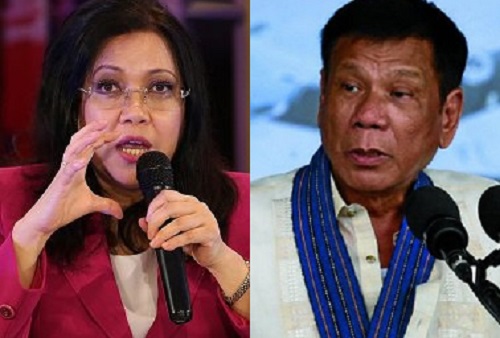Too many TROs? SC chief debunks Duterte claim
Chief Justice Ma. Lourdes Sereno has debunked President Rodrigo Duterte’s oft-repeated, sweeping claim that the courts have abused the issuance of temporary restraining orders (TRO) that have been the bane of government infrastructure projects.
In a speech before the Management Association of the Philippines, Sereno presented data to “debunk a persistent myth that courts are issuing too many restraining orders against infrastructure of the government.”
Sereno said that the high court and the Court of Appeals have issued only one TRO each against infrastructure projects since 2012 and 2013, respectively.
Sereno said that in 2015, there were 2,039 petitions for TROs filed with the appeals court but only 50 or 2.45 percent were granted and none concerned government projects.
Sereno said the high court was still gathering data for TROs issued by lower courts. “But our initial impression is that the TROs being issued by lower courts are not against government infrastructure project,” said Sereno who noted that the Supreme Court has issued seven circulars reminding lower courts on the prohibition on issuing TROs against government projects.
Article continues after this advertisementThe President recently signed an executive order to “pressure the Supreme Court to finally resolve the two-year TRO on the reproductive health law, which has hampered the government’s program to promote and distribute contraceptives for its family
Article continues after this advertisementIn various speeches during the campaign and after the election, President Duterte has harped on the corruption in the judiciary with their propensity to issue TROs for a fee just to stop the award of government projects.
Sereno assured businessmen that the high court was looking at ways to ensure fair and speedy resolution of legal gridlocks, specifically land disputes and controversies involving government projects.
Sereno said the tribunal was moving to streamline these cases by consolidating different cases relating to the same property—either for possession or ownership or damages—and creating Special Infrastructure Courts for disputes involving government projects.
